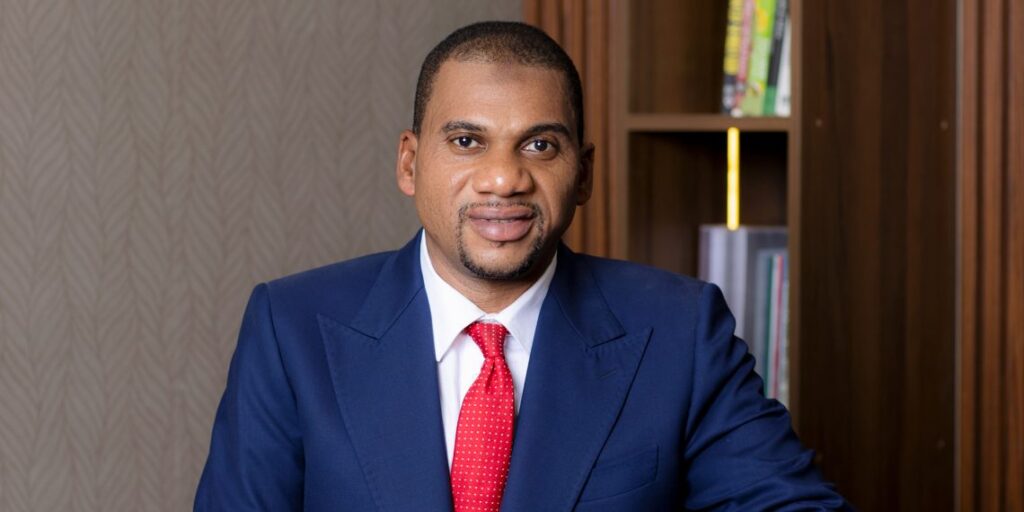GCB Bank PLC has proposed a GHS 1 dividend per share for the 2024 financial year, marking a significant return to dividend payment after a two-year hiatus.
The announcement was made at the Bank’s 31st Annual General Meeting (AGM), where the Board also revealed a strong financial performance and outlined a strategic roadmap for the coming years.
The proposed dividend—subject to the approval of the Bank of Ghana—will amount to GHS 265 million in total, translating into a 15.7% dividend yield for shareholders. This marks the first time since the domestic debt exchange programme in 2022 that GCB Bank is proposing the payment of dividends. The hiatus, which affected most banks operating in Ghana, was largely due to capital constraints and regulatory pressures stemming from the financial sector’s exposure to government bonds.
Speaking at the AGM, Managing Director Mr. Farihan Alhassan noted that the proposed dividend signals a return to financial stability and improved capital adequacy. “We believe this payment reflects our strengthened position and our unwavering commitment to shareholder value,” he stated.

Record Financial Performance in 2024
GCB Bank’s impressive proposal to resume dividends is underpinned by a record-breaking financial performance in 2024. The Bank achieved a Profit Before Tax (PBT) of GHS 1.9 billion—a 23.3% year-on-year increase. This performance was driven by an 18.6% growth in interest income, a 22.5% boost in non-funded income, and an 8.4% rise in net trading income. Altogether, these earnings propelled the Bank’s total income and helped shore up its capital base.
Additionally, Earnings Per Share (EPS) rose to GHS 4.53, with the Bank delivering a 32.4% Return on Equity (RoE) and 3.4% Return on Assets (RoA), both reflecting efficient capital utilization and operational effectiveness. Total assets surged by 57.6% year-on-year to reach GHS 42.8 billion—far exceeding the industry average growth rate of 33.79%.
The Bank’s shareholders’ equity increased significantly, growing by 41% to GHS 4.3 billion in 2024. This has enabled GCB to bolster its Capital Adequacy Ratio (CAR), which now stands at 15.23%—well above the regulatory minimum of 13%. This robust capital base has been critical in reassuring shareholders and regulators of the Bank’s financial resilience, especially in the aftermath of Ghana’s economic restructuring.
Complementing this is a marked improvement in asset quality. GCB’s Non-Performing Loan (NPL) ratio dropped by 5.1 percentage points to 15.1% in 2024, reflecting enhanced credit risk management and improved loan recovery efforts.
Embracing Cybersecurity and Digital Transformation
As part of its strategy to protect its assets and customers, GCB Bank is investing heavily in cybersecurity systems. The Bank has established a cyber centre that provides real-time monitoring to detect and prevent intrusion attempts. According to the Managing Director, this effort is complemented by customer education initiatives aimed at creating awareness of online threats and promoting safe digital practices.
“We are monitoring our systems every second. We’re educating our customers as well, and we’re investing heavily in this area to ensure we are resilient to external threats,” Mr. Alhassan said. This cybersecurity drive aligns with GCB’s broader ambition to become Ghana’s first fully digitized bank.
To steer this vision, the Bank has appointed a Chief Digital Officer whose mandate is to oversee the Bank’s transformation into a fully digital financial institution. By leveraging automation and digital platforms, GCB aims to reduce operational costs, enhance customer experience, and introduce innovative financial products.
Leadership Renewal and Strategic Direction
In a bid to inject fresh ideas and strategic oversight, the 31st AGM also approved the appointment of 10 new directors to the reconstituted Board of Directors. The new Board will be chaired by Professor Joshua Alabi, who assumes the role of Independent Non-Executive Director and Board Chairman, while Mr. Farihan Alhassan continues as Managing Director.
The Bank also launched a new strategic cycle (2025–2028) focused on three core pillars: Customer Experience, Digital Transformation, and People & Talent. These pillars are expected to drive innovation, improve operational efficiency, and build long-term value for shareholders.
According to Professor Alabi, “Our focus going forward is to enhance customer satisfaction, boost sales activities, and leverage technology to ensure that GCB Bank becomes a market leader across all key financial metrics.”
Beyond its strong financials, GCB Bank continues to play a pivotal role in national development through its Corporate Social Responsibility (CSR) initiatives. In 2024 alone, the Bank invested GHS 12 million into various programs in education, health, social inclusion, and youth entrepreneurship.
Highlights include support for the KNUST Career Services Centre, donation of over 3,000 textbooks to schools, funding of critical medical treatments such as breast cancer and eye surgeries, and support for the Akropong School for the Blind and the Osu Children’s Home. The Bank also launched the “Entrepreneurship in You” programme to support youth-led startups and job creation.
As it transitions into its next strategic phase, the Bank’s renewed focus on customer experience, innovation, and risk resilience positions it well to deliver long-term value—both to its shareholders and to the broader Ghanaian economy.
READ ALSO: Judiciary Charged to Uphold Independence



















